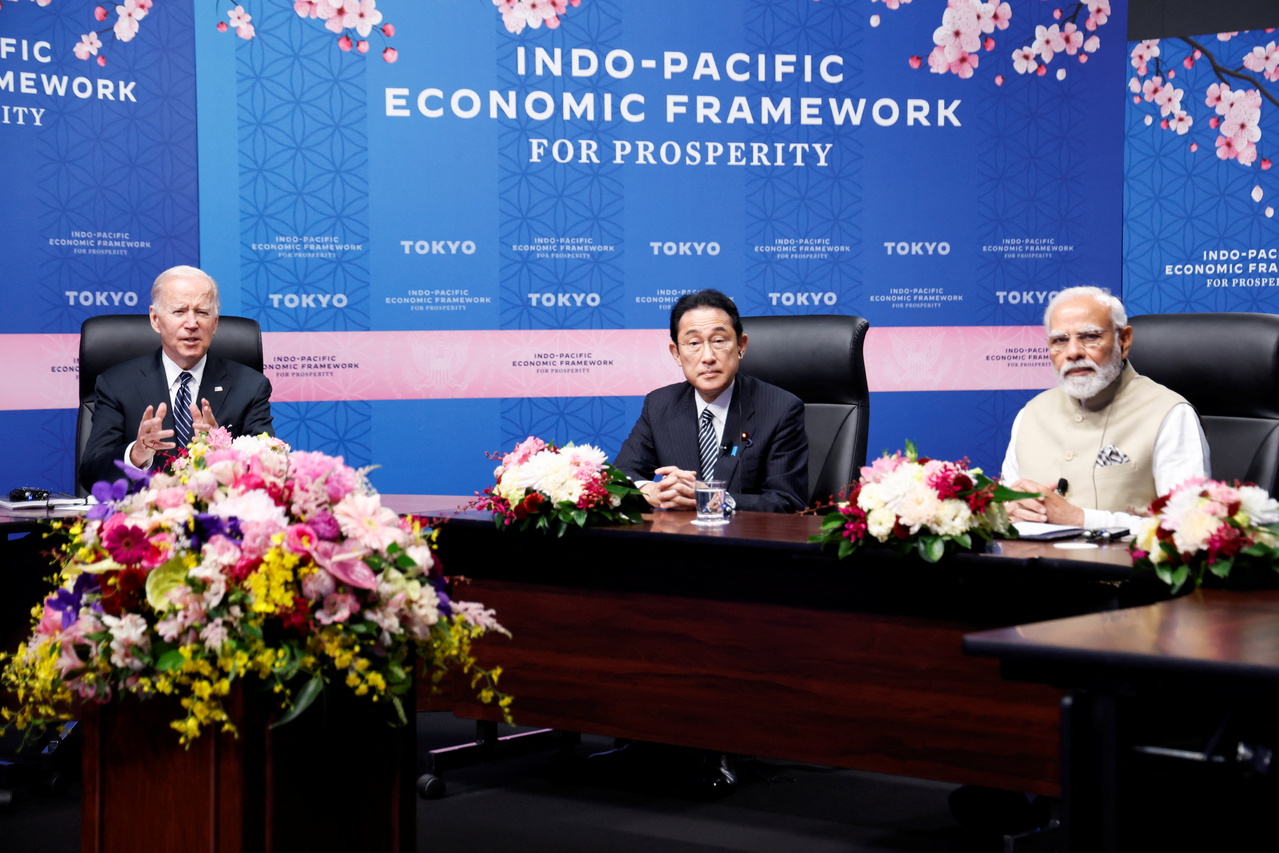For subscribers
Economic Affairs
IPEF needs to be win-win, not US-centric
The framework has promise but needs incentives for countries to stay the course.
Sign up now: Get ST's newsletters delivered to your inbox

(From left) US President Joe Biden, Japan PM Fumio Kishida and India PM Narendra Modi at the launch of IPEF in Tokyo on May 23, 2022.
PHOTO: REUTERS
To add to AFTA, the TPP, which became the CPTPP, and most recently the RCEP, there's a new acronym in the alphabet soup of trade agreements relating to Asia: IPEF or the Indo-Pacific Economic Framework, which was launched in Tokyo last week.
To be precise, IPEF is not a traditional trade agreement, which typically includes mutual commitments to expand market access. But it does contain trade-related elements, such as strengthening supply chains, cutting red tape that hinders trade, improving labour standards and expanding digital trade. It also has other pillars: improving infrastructure, promoting decarbonisation and setting new rules on taxation and anti-corruption.


